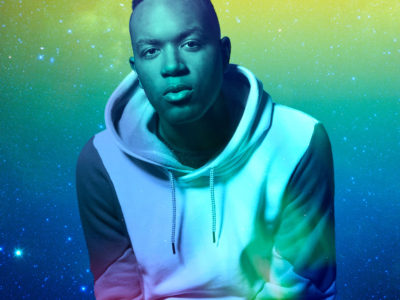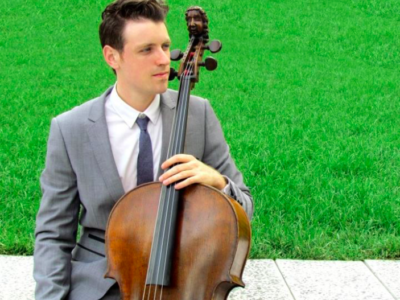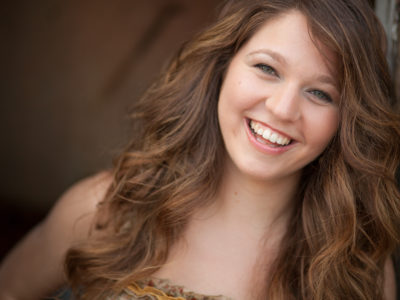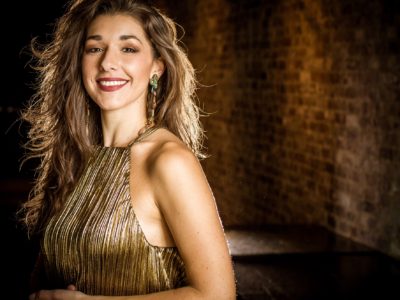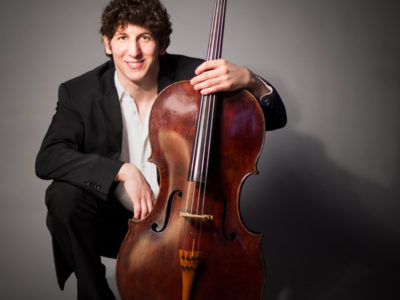Meet our Artist of the Week – sensational opera singing mezzo-soprano and co-founder of Bare Opera, Kirsten Scott. Kirsten will be performing an operatic program – Wonder Women – A Tribute to the Strong Ladies of Opera- showcasing Carmen and other strong female opera roles (some male roles played by women as well)!
.
.
.
We loved chatting with Kirsten about her musical journey from frustrated child instrumentalist to opera singer to opera company founder and artistic director of women-run Bare Opera in New York City. Read the full interview below!
.
.
.
MusicTalks: How did you become aware of opera and when did you decide to pursue it as a career?
Kirsten Scott: Like many of my friends in Dover, Massachusetts, I had parents – a mother in particular – who pushed me to study musical instruments growing up. I bounced from violin – I can still play twinkle twinkle little star – to flute, to piano, until finally my mom agreed to let me take voice lessons in early high school. My focus then was mostly musical theater, but after attending a local orchestral concert featuring a mezzo-soprano name Gale Fuller, I desperately wanted to study opera. I insisted on talking with her backstage afterwards and asked if she would teach me. The rest is history. I went to Wellesley College for my B.A. (coincidentally where Gale Fuller was also on the voice faculty), was a varsity rower on their crew team, and then decided to take my singing to the next level and move to New York City to get my masters degree at Mannes, The New School for Music.
MT: What inspired Bare Opera and how has running an opera company changed your perspective on the classical music business?
KS: Well, Bare Opera started for about a million reasons, but perhaps the most notable reason is a serious lack of paid performing opportunities for young opera singers (whom we call “young artists”). My dear friend and colleague Laetitia Ruccolo and I had worked extensively with Loft Opera for its first season back in 2013, so we felt we knew what it would take to found a company. Coupled with the brilliant business mind of Min Lew, a classmate from Wellesley College who was working at the Metropolitan Opera at the time, we felt like an unstoppable team. After a three hour meeting and several cups of coffee at Pushcart Coffee in Manhattan, we decided that we would create a brand of opera that focused on bringing performance opportunity to young artists while exposing new audiences to opera through riveting immersive performances in unconventional places. And now we are approaching our fourth year!
MT: What have been some challenges you have faced with Bare Opera, but also with your own solo opera career?
KS: Certainly balancing artistically directing an opera company while also establishing myself as a soloist has been a challenge. However, more and more we are seeing young performers being highly entrepreneurial and wearing many different hats simply because we need to survive. I love surprising people, so it’s always fun to live by example and show people that being a serious performer as well as being an impactful director of a company is possible. Bare Opera continues to grow and improve and it has given me a platform on which to perform and also share my artistic voice in a way that often isn’t possible when you are simply hired to do a role.
MT: What does Women’s Month mean to you this year?
KS: The #metoo movement being at the forefront of everyone’s minds recently certainly inspires me to continue empowering people to strive for not only gender equality, but also respect in the workplace. At Bare Opera, we are focused on building a community or family of musicians who always feel respected, feel included, and feel they have a voice. I believe that kind of community is contagious.
MT: Why do you believe opera has and will continue to survive?
KS: Music, even old music like 17th and 18th century opera, has something to teach us about the inherent strength and compassion in all of us – men, women, non-binary people. There are so many subtle challenges to period norms in opera, you just have to dig for them. As 21st century storytellers, we has the opportunity to shed light on those subtleties and offer a fresh perspective. New operas more directly address current issues, and that is also exciting to witness. Ultimately its the passion and power of the opera art form that will keep it alive. Bare Opera gets so many new opera goers whose initial reaction to the operatic voice is sheer wonder. People can’t believe that humans can make such a powerful and moving sound, and that keeps them coming back again and again.
MT: What is your favorite operatic role? Your favorite opera? Who is your favorite singer?
KS: I love Carmen, because she is strong-willed, a leader, passionate, and fiercely independent. She would definitely fit in well in the 21st century. I can’t wait to sing some of the highlights of her role with MusicTalks! My favorite opera is Der Rosenkavalier, because I adore pants roles (when women play men) and the music and story are breathtaking. My favorite singer – oh, this is a hard one – is probably Cecilia Bartoli because she teaches me through her insanely perfect coloratura and nuanced musical interpretations.



